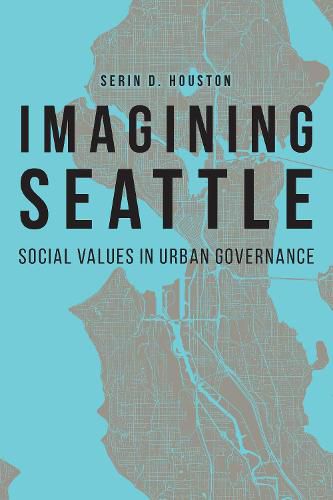Readings Newsletter
Become a Readings Member to make your shopping experience even easier.
Sign in or sign up for free!
You’re not far away from qualifying for FREE standard shipping within Australia
You’ve qualified for FREE standard shipping within Australia
The cart is loading…






Imagining Seattle dives into some of the most pressing and compelling aspects of contemporary urban governance in the United States. Serin D. Houston uses a case study of Seattle to shed light on how ideas about environmentalism, privilege, oppression, and economic growth have become entwined in contemporary discourse and practice in American cities. Seattle has, by all accounts, been hugely successful in cultivating amenities that attract a creative class. But policies aimed at burnishing Seattle’s liberal reputation often unfold in ways that further disadvantage communities of color and the poor, complicating the city’s claims to progressive politics.
Through ethnographic methods and a geographic perspective, Houston explores a range of recent initiatives in Seattle, including the designation of a new cultural district near downtown, the push to charge for disposable shopping bags, and the advent of training about institutional racism for municipal workers. Looking not just at what these policies say but at how they work in practice, she finds that opportunities for social justice, sustainability, and creativity are all constrained by the prevalence of market-oriented thinking and the classism and racism that seep into the architecture of many programs and policies. Houston urges us to consider how values influence actions within urban governance and emphasizes the necessity of developing effective conditions for sustainability, creativity, and social justice in this era of increasing urbanization.
$9.00 standard shipping within Australia
FREE standard shipping within Australia for orders over $100.00
Express & International shipping calculated at checkout
Imagining Seattle dives into some of the most pressing and compelling aspects of contemporary urban governance in the United States. Serin D. Houston uses a case study of Seattle to shed light on how ideas about environmentalism, privilege, oppression, and economic growth have become entwined in contemporary discourse and practice in American cities. Seattle has, by all accounts, been hugely successful in cultivating amenities that attract a creative class. But policies aimed at burnishing Seattle’s liberal reputation often unfold in ways that further disadvantage communities of color and the poor, complicating the city’s claims to progressive politics.
Through ethnographic methods and a geographic perspective, Houston explores a range of recent initiatives in Seattle, including the designation of a new cultural district near downtown, the push to charge for disposable shopping bags, and the advent of training about institutional racism for municipal workers. Looking not just at what these policies say but at how they work in practice, she finds that opportunities for social justice, sustainability, and creativity are all constrained by the prevalence of market-oriented thinking and the classism and racism that seep into the architecture of many programs and policies. Houston urges us to consider how values influence actions within urban governance and emphasizes the necessity of developing effective conditions for sustainability, creativity, and social justice in this era of increasing urbanization.